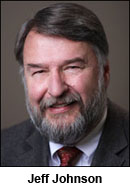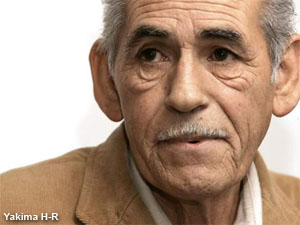OPINION
Tomás Villanueva: A life well spent fighting for dignity
UPDATE: A memorial service for Tomás Villanueva will be held at 2 p.m. on Saturday, June 21 at Toppenish Middle School’s gymnasium, 104 Goldendale Ave. in Toppenish, WA.
By JEFF JOHNSON
(June 11, 2014) — Last week a working class hero died.
Tomás Villanueva, longtime farm worker leader, advocate and organizer in the Yakima Valley, died at the Sea Mar long-term care facility in Seattle at the age of 72. Tomás was loved by all that knew him, feared by some who did not understand him, and respected by all that are willing to be honest with themselves. I am honored to have been a friend of Tomás’ for nearly thirty years and with his passing a piece of my heart has gone with him.
In January of 1987 Larry Kenney, then President of the Washington State Labor Council, AFL-CIO, who just two months before had hired me as the WSLC’s Research Director and lead lobbyist, asked whether I would join him for a meeting with Tomás at the Governor’s House Hotel in Olympia.
Though slight in stature, Tomás was a warrior for social justice. He had one question — would the WSLC support farm worker issues or would they continue to ignore the struggle for social justice for farm workers? Larry’s answer was that we support the cause and then he asked me whether I would be interested in working with Tomás and the newly formed United Farm Workers of Washington State.
Thus began a beautiful friendship and some of the most important work I have ever done.
The next weekend I attended my first farm worker union meeting in Granger, Wash. In an old Quonset hut behind a building that housed radio KDNA and Evergreen Legal Services (now Columbia Legal Services), a couple hundred farm workers listened to Tomás speak about how they had nothing to lose in the struggle for fair wages, dignity at work, and bright future for their children because they had so little to begin with. What they had was their spirit and the moral high ground.
The next five years were a whirlwind of activity, including over two dozen wildcat strikes, dozens of farm worker marches, a boycott of the largest winery in Washington State, Chateau Ste. Michelle, and the inclusion of farm workers under the state’s minimum wage, unemployment insurance laws, child labor standards, health and safety laws, and the creation of a pesticide panel to oversee what was being sprayed on farms throughout the state.
Tomás split his time between living at picket lines, organizing groups of farm workers to come over to lobby legislators in Olympia, and talking to anyone willing to listen about the plight of farm workers and their families. And people listened. Tomás was fearless. He use to say that the word “no” was just a temporary thing. But what made Tomás so effective was his absolute sincerity and genuineness. Tomás was totally disarming this way.
Once after we completed a three-day hunger strike at the Capitol, we invited ourselves into a Senate Democratic Caucus meeting. It was clear that this was not something that was customarily done (if ever — judging by the looks of disdain on some of the Senator’s faces). By the end of the meeting Tomás had convinced even the most cynical in the room that while they were politically in the minority, they really had no idea what it was like to be a minority and so the Senators ought to act with some backbone and some dignity to fight for what was right.
On Tomás’ frequent trips to Olympia he would stay with me and my family at an old farm house we owned at the time. Tomás embraced my daughters, Danica and Anya, as if they were his own and I knew that he missed his children terribly because the work took him away from them so much. Some of my fondest memories of times with Tomás were sitting out on the porch after dinner plotting strategy, smoking cigarettes, drinking beer and listening to Tomás’ stories as a “gandy dancer” on the railroad and life in the Valley.
By 1992 it was clear that Tomás needed to pass on the reins of the union as he secured full-time and full paid work with health benefits for his family. After a stint at the Insurance Commissioner’s office, Tomás became the Eastern Washington Community Advocate for DSHS and continued to speak out on issues regarding the poor, elderly, veterans, and farm workers. Tomás had a weekly radio show on KDNA where he continued a decades long discussion with the farm worker community about organizing for social justice and power.
Tomás always had great faith in our children and what they might accomplish if folks would just listen to them. In 2006, he told me that he thought he could best help the children and those most in need by running for the State Senate from the 15th Legislative District. He decided to take on Senator Jim Honeyford, a grower and former librarian. We took several long road trips campaigning that season – the district stretched from Wapato to Camas. Everywhere we went Tomás made a huge impression and made new friends. One of the highlights of this time was when we were invited to speak before the Yakima Tribal Council. Tomás spoke of the need to heal long-standing divisions in the Valley and for the tribal members and farm workers to stand together to make change.
Tomás lost the Senate race but he never lost either the desire to run again nor his belief that changing the law was an important way to balance the scales for farm workers and their children. Though it had been a while, the last time I saw Tomás in the nursing home he told me of his plans to run for the Senate again. I thought, “not you, my dear brother, but perhaps your daughter, Graciella, will one day sit in the Washington State Senate, or better yet, in Congress.”
As we remember Tomás let us also remember a few stanzas from Cesar Chavez’s Farm Worker Prayer:
Show me the suffering of the most miserable;
So I will know my people’s plight.
Give me honesty and patience;
So that I can work with other workers.
Let the spirit flourish and grow;
So that we never tire of the struggle.
Let us remember those who have died for justice;
For they have given us life.
Help us love even those who hate us;
So we can change the world.
 Brother Tomás, you have helped change the world for the better and all who have known you are stronger for it.
Brother Tomás, you have helped change the world for the better and all who have known you are stronger for it.
Jeff Johnson is President of the Washington State Labor Council, AFL-CIO, the largest labor organization in the Evergreen State, representing the interests of more than 500 local unions and 400,000 rank-and-file union members.






